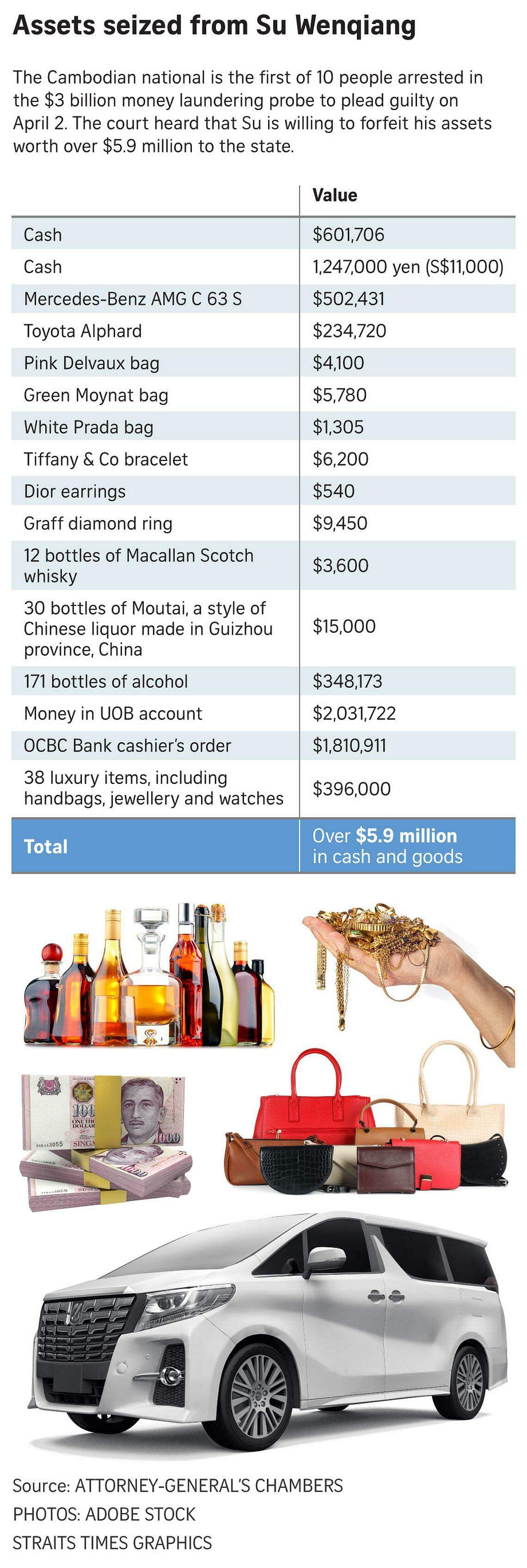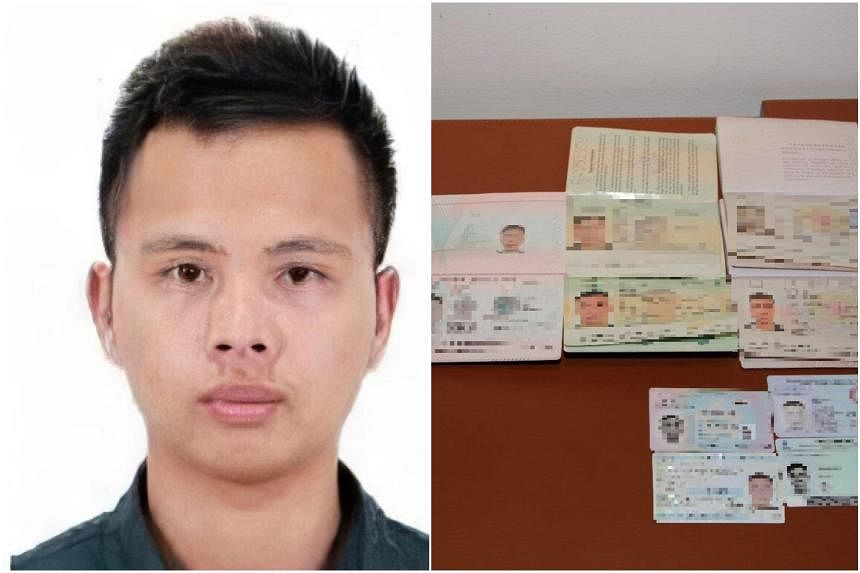SINGAPORE – Cambodian national Su Wenqiang – the first person to be sentenced in Singapore’s largest money laundering case – will be deported after his release from prison.
He will also be barred from re-entering Singapore, an Immigration and Checkpoints Authority spokesman told The Straits Times on April 4.
As to which country he will be sent back to, the spokesman said “the location of deportation is dependent on the admissibility of the foreigner based on his or her valid passport”.
Su became a Cambodian national on Oct 7, 2019. He also holds passports from Vanuatu and China.
The 32-year-old was sentenced to 13 months’ jail on April 2 after pleading guilty to two money laundering charges, becoming the first of 10 foreigners to be convicted over a probe that saw more than $3 billion in cash and assets seized.
Su was arrested on Aug 15, 2023, and had been in remand for almost eight months.
Associate Professor Mervyn Cheong from the National University of Singapore said that if Su’s sentence is backdated to his date of arrest, then he might be out at the end of April, or in early May.
Under the Prisons Act, an inmate will receive a one-third remission unless certain incidents occur while he serves his sentence – for example, committing an offence such as rioting in prison.
Prof Cheong, who practises at Advocatus Law, said that with the remission, Su’s effective jail term is about 8½ months.
Speaking from his experience, he said that foreigners are typically deported after they complete their sentences. This is because they are no longer considered desirable persons to remain in Singapore, and not because there is any law or international agreement that governs the deportation of such offenders, said Prof Cheong.
He added that the foreigner, or his family, also has to pay for his own airfare.
As to which country Su would go to, Prof Cheong said it is not where Singapore wants to deport him back to, but where his passport allows him to travel. He said foreign offenders will usually travel back to where they are a citizen of.
Mr Alexander Woon of RHTLaw Asia said deportation is different from extradition, where a state seeks the return of an accused person in order to prosecute him.
Su has been on China’s wanted list for illegal online gambling activities since 2017.
Singapore does not have extradition treaties with China and Cambodia. However, it has an extradition arrangement with Vanuatu, part of a scheme for extradition between Commonwealth countries.
On whether Su’s family might also be deported, Mr Woon said it depends on their own immigration status and whether they have violated any conditions of their permit or pass.
Su is married to Su Yanping, who is a person of interest in the case, and they have two young children. The family moved from China to Singapore in 2021.
Mr Woon, who lectures at the Singapore University of Social Sciences, said: “It’s not clear whether his family have independent rights to be here on their own, or whether they are parasitic on his permit or pass.”
Su admitted to two money laundering charges over his possession of more than $600,000 in cash – benefits from unlawful remote gambling offences – and the use of $500,000 in criminal benefits to buy a Mercedes-Benz car.
Another nine charges were taken into consideration for his sentencing. They comprise six for money laundering, one for possessing a forged marriage certificate, and two for making false statements to the Ministry of Manpower.
His lawyers and the prosecution held multiple pre-trial conferences that were not open to the media.

Prof Cheong said Su’s lawyers would have asked the prosecution for a plea offer. This means if the accused person pleads guilty, the prosecution will proceed on a certain number of charges and apply for the other charges to be taken into consideration for sentencing, instead of proceeding on all charges.
To obtain a plea offer, Prof Cheong said, the defence could provide more evidence to the prosecution about the culpability or involvement of their client in the crime. The accused person could also offer more information in a show of remorse.
Su has forfeited his assets worth over $5.9 million to the state. They included a Graff diamond ring, a pair of Dior earrings, a Tiffany & Co bracelet, a Prada bag, a Toyota Alphard vehicle, bottles of Macallan Scotch whisky and cash.
Mr Woon said a sentence for a guilty plea is expected to be about one-third less than a trial sentence, if the accused pleads guilty quickly. However, this discount diminishes if the accused pleads guilty closer to trial, he added.
Had Su claimed trial, Prof Cheong said he would not have had any sentencing discounts.
During Su’s sentencing, prosecutors had said in court that a 30 per cent discount was already factored in for the sentence of 12 to 15 months’ jail they had sought.
Said Prof Cheong: “In Su’s case, it is probable that his agreement to forfeit a very substantial amount of seized assets, instead of contesting the forfeiture, showed his remorse and gave good grounds for a plea offer to be extended.”

